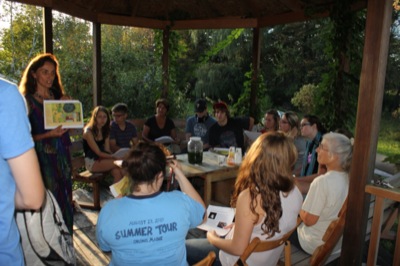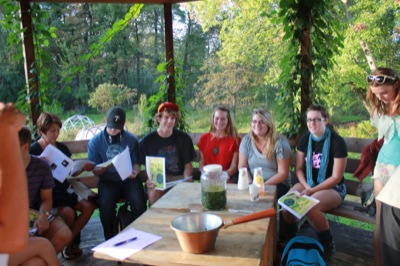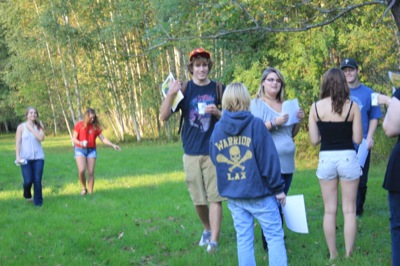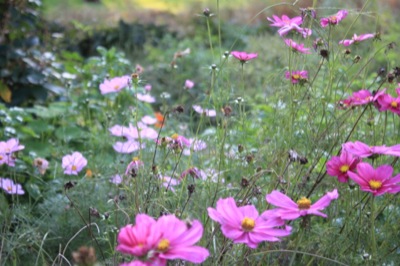 To coincide with Digital Humanities Week 2011, Joline Blais joins permaculture experts Julia and Charles Yelton, social media hackademic Craig Dietrich, Rural Maine Partners’ Claudia Lowd, and members of the Wabanaki community in hosting “Social Media and Sustainability” at LongGreenHouse, a clearinghouse for sustainable culture on the edge of the U-Me campus.
To coincide with Digital Humanities Week 2011, Joline Blais joins permaculture experts Julia and Charles Yelton, social media hackademic Craig Dietrich, Rural Maine Partners’ Claudia Lowd, and members of the Wabanaki community in hosting “Social Media and Sustainability” at LongGreenHouse, a clearinghouse for sustainable culture on the edge of the U-Me campus.
 The event starts with a tour of the edible landscape on site at LongGreenHouse, and continues with a discussion at Lowd’s urban garden on how insights from Native culture, permaculture, and digital culture can reconnect ourselves to the earth.
The event starts with a tour of the edible landscape on site at LongGreenHouse, and continues with a discussion at Lowd’s urban garden on how insights from Native culture, permaculture, and digital culture can reconnect ourselves to the earth.
The discussion also touches on uses of social media for connecting and promoting local growers, including LA Green Grounds, a project by Vanessa Vobis, Craig Dietrich, and others to inspire edible lawns in the urban jungle.
 LongGreenHouse has been the site of a four-year project in sustainable gardening that has engaged permaculture experts, students from the University of Maine and nearby schools, and members of the local Native community.
LongGreenHouse has been the site of a four-year project in sustainable gardening that has engaged permaculture experts, students from the University of Maine and nearby schools, and members of the local Native community.
The grounds have been carefully designed to support a diversity of mutually supporting edible and medicinal plants, including 8 varieties of trees, 17 varieties of bushes, and 20 varieties of herbs. Rain-channeling swales, closed-loop composting, and polycultured beds filled with perennials result in no-till gardening with maximal yield for minimal effort.
 Newly planted hazelnut, pear, and plum trees have taken root near a pair of full-grown apple trees and a venerable and sheltering silver maple. Joining the extensive blueberries native to the site are strawberry, highbush blueberry, winterberry, jostaberry, and everbearing raspberry bushes.
Newly planted hazelnut, pear, and plum trees have taken root near a pair of full-grown apple trees and a venerable and sheltering silver maple. Joining the extensive blueberries native to the site are strawberry, highbush blueberry, winterberry, jostaberry, and everbearing raspberry bushes.
Lilacs, willow, and various flowering shrubs attract butterflies to the front yard, while a polyculture garden in the back yard combines species such as coneflower and bee balm in cooperative combinations. Flavorful and medicinal herbs complete the edible landscape, from sage and horseradish to chamomile and wild ginger.
 For drawings and a detailed list of plants, see the design at Permaculture UMaine. For more on permaculture, see this recent New York Times article.
For drawings and a detailed list of plants, see the design at Permaculture UMaine. For more on permaculture, see this recent New York Times article.

Looks like a pretty nice place, wish we had something similar on our campus…
I love this advocacy, hope this will continue and be supported by people and most especially the government. It is good that this type of advocacy has applied social media. As now a days social media has a great role in the audiences and marketing. I encourage the people to support this project since global warming is prevalent. Sustainability not only help the environment but also to have sustain economy and people in the lower strata like farmers are motivated to produce more. Sustainability equals feeds the hunger.